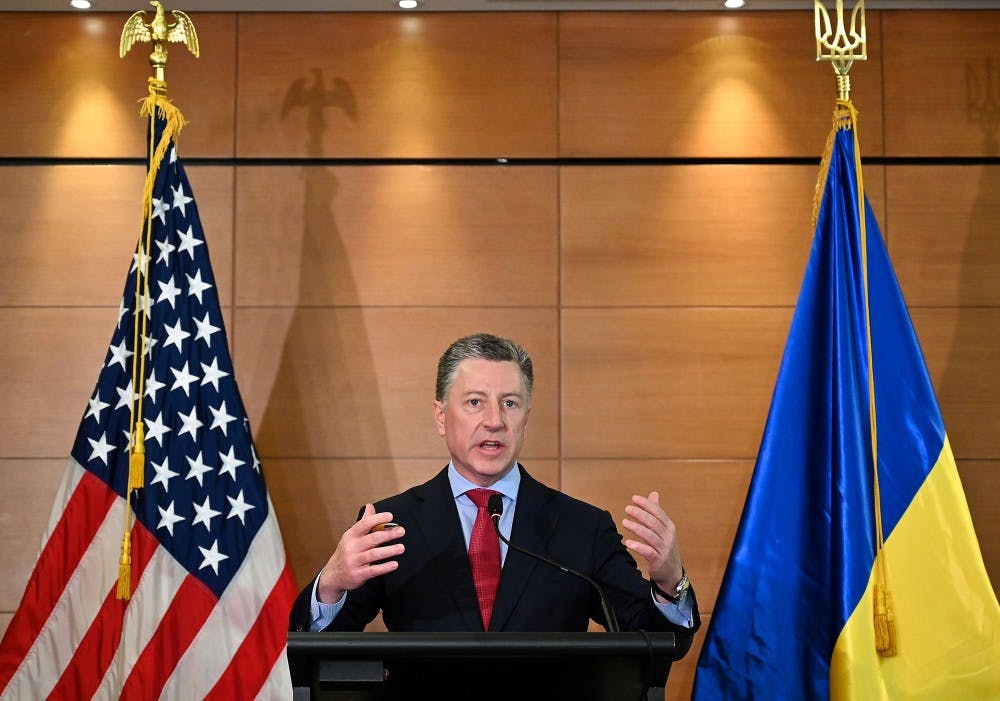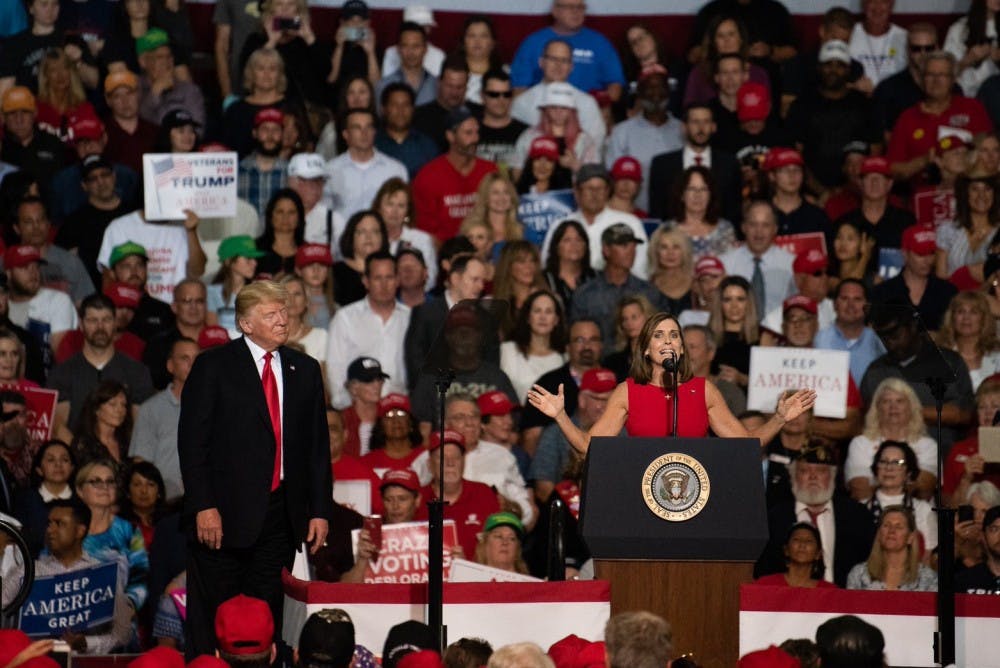Former U.S. Special Envoy to Ukraine Kurt Volker will testify behind closed doors to three House committees Thursday, and Arizona political consultants believe his testimony could have broad implications in the overall impeachment inquiry.
Volker resigned from his position at the State Department last Friday after his name surfaced in the whistleblower report, which claimed he met with and provided advice to Ukrainian leadership about “how to 'navigate' the demands that the president had made of Mr. Zelensky.”
The whistleblower report sparked a political fire and led House Speaker Nancy Pelosi (D-California) to open an impeachment inquiry into President Donald Trump.
Bill Scheel, a political consultant for the firm Javelina, said Volker will likely try to explain his relationship with Trump’s personal attorney, Rudy Giuliani.
"The main question that people have is whether Volker ... was helping Giuliani or ... trying to control Giuliani, that's the big question,” Scheel said.
Scheel said he expects Republican lawmakers to use Volker as a “fall guy” and attempt to weave Volker into the “deep-state conspiracy.” But he anticipates Volker will try to wash his hands of any wrongdoing.
Secretary of State Mike Pompeo tried to prevent Volker and other officials from testifying in the House when he sent a letter to the foreign affairs committee. In the letter, Pompeo wrote that five officials, including Volker, would not appear before the three committees.
In the letter, Pompeo said that the requests from House Democrats are "an attempt to intimidate, bully, and treat improperly the distinguished professionals of the Department of State."
Volker did not speak publicly about Pompeo's letter but is still scheduled to attend his depositions on Thursday.
"I think (Volker’s) going to emphasize that he went through all the proper channels and never tried to hide anything," Scheel said. "At the end of the day his goal, as he said in his email, was to strengthen Ukraine and protect it from Russian aggression and that everything he did was toward that goal."
Will there be a tipping point?
Jason Rose, another Valley political consultant, compared this inquiry to the Mueller report and Watergate, adding that Volker's testimony will be key to find out if there is a “smoking gun.”
"I think as we enter this new phase, the question is, 'Is anyone going to become Donald Trump's John Dean?'" Rose said. "Is anyone going to convey or share smoking-gun-like information that takes this from a partisan fight into one that becomes much more bipartisan — like Watergate."
Rose said it’s “completely up in the air” if Volker will play that role, but added that many people did not expect those who were key in the Watergate investigation to have that level of influence either.
“When you look back at John Dean's role, was Deep Throat or John Dean expected to be the tipping point? Maybe not," Rose said.
Rose said, up to this point, Republicans have been supportive of the president because he has continued to push his conservative ideals forward, but Rose added that Volker’s testimony has the potential to be the tipping point.
“They've tolerated this president because of Supreme Court nominees, because of a good economy, because of regulation reform, but is this going to be the guy?” Rose said. “Who's going to be the woman? Who's going to be the person that, as Malcolm Gladwell might say, 'Is going to be the tipping point that becomes the smoking gun so that even Republicans bail?'”
However, Rose said that it’s entirely possible Thursday’s testimony will not be that moment.
"It could be tomorrow, it could be three months from now, we shall see," he said.
Despite making international headlines for his involvement with the Trump-Ukraine controversy, Volker has remained focused on his day job as executive director of the McCain Institute at ASU, according to a spokesperson.
"He's very much our executive director, and he's carrying out institute business even as he prepares to comply with the request from Congress to testify," said McCain Institute spokesperson Luke Knittig.
Volker's role as the McCain Institute's executive director
Volker, 54, has helmed the institute since its inception in 2012 and made $329,332 last year in his role as executive director for the institute, according to the 2018 State Press salary database.
Former Sen. John McCain and Volker were known to have a close relationship, and prior to joining the institute, Volker worked as a staffer for McCain. Among other foreign affairs positions, Volker has worked within the CIA and as U.S. Ambassador to NATO.
Read more: Database: ASU employee salaries
In an email to the McCain Institute board obtained by The Arizona Republic, Volker said he has always kept his work on Ukraine, “completely separate from my role at the McCain Institute for ethical reasons and to avoid any conflict of interest.”
Board members have expressed their confidence in Volker both in his position at the institute and in regard to his dealings with Ukraine. Scheel said he believes McCain would be supportive of Volker.
Based in Washington, D.C., the institute provides internship opportunities to ASU students and holds other partnerships with the University. Former Sen. John McCain himself helped launch the institute, which is a nonpartisan and a nonprofit, through a $9 million donation from the McCain Institute Foundation.
The institute focuses on developing leadership, impactful research, protecting national security and promoting human rights advocacy while continuing the legacy of McCain, according to its website.
Arizona impact
Scheel said he believes the testimony will have a broader impact on Arizona politics, specifically for Republican Sen. Martha McSally.
McSally has praised McCain in the past but also supports many of Trump's policies, which has drawn criticism from Arizona residents.
Scheel said that McSally will likely have to choose one or the other amid the controversy.
"It creates challenges for Martha McSally again," Scheel said. "(She's) been trying to straddle that McCain-Trump divide for the last three years, and so I think she can't be real happy about now having to face those questions again of 'Whose side are you on — McCain's side or Trump's side?"
Reach the reporters at adunn11@asu.edu and ajhowar6@asu.edu and follow @adrienne_dunn and @andrew_howard4 on Twitter.
Like The State Press on Facebook and follow @statepress on Twitter.





